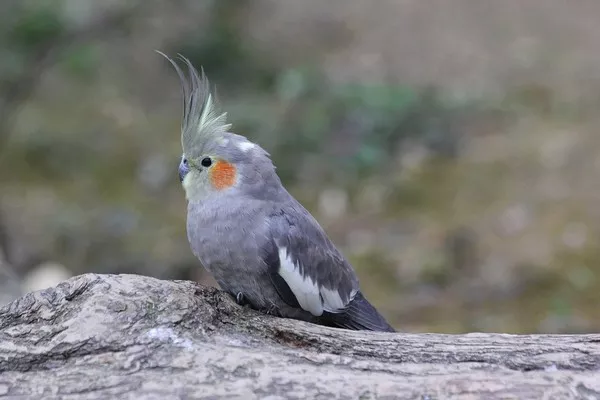The Akita, with its striking appearance and dignified demeanor, has captured the hearts of dog lovers worldwide. If you are considering adding an Akita puppy to your family, it’s essential to understand the financial aspects of this decision. The price of an Akita puppy can vary significantly depending on various factors, such as the puppy’s lineage, health, and breeder reputation. In this article, we will explore the average price of an Akita puppy, the factors influencing the cost, additional expenses to consider, and tips for finding a reputable breeder.
1. Average Price of an Akita Puppy
The average price of an Akita puppy can range from $800 to $2,000 or even more. However, it’s essential to remember that the initial cost is just one part of the total expenses involved in owning a dog. Various factors influence the price of an Akita puppy:
Breeder Reputation: Reputable breeders who invest in health testing, quality care, and responsible breeding practices tend to charge higher prices for their puppies. These breeders prioritize the health and well-being of their dogs, which can positively impact the overall cost.
Lineage and Pedigree: Akita puppies with strong pedigrees and champion bloodlines often come with a higher price tag. Show-quality Akitas, bred for their conformation and breed standards, are typically more expensive than those intended for companion purposes.
Health Certifications: Ethical breeders conduct health screenings for genetic conditions common in Akitas, such as hip dysplasia and eye disorders. Puppies from health-tested parents may have a higher price due to the added investment in health certifications.
Geographic Location: The cost of living and demand for Akitas can vary significantly by region. In areas with a high demand and limited supply of Akita puppies, prices may be higher.
Color and Coat Type: Akitas come in various coat colors and patterns, including red, white, brindle, and pinto. Uncommon coat colors or patterns may command a higher price.
Age of the Puppy: Younger Akita puppies are generally more expensive than older ones. Puppies at around 8 to 12 weeks old are in high demand.
2. Additional Expenses to Consider
Beyond the initial purchase price of an Akita puppy, prospective owners should be prepared for additional expenses throughout their dog’s life. These ongoing costs include:
Veterinary Care: Regular check-ups, vaccinations, and preventive medications are essential for maintaining an Akita’s health. Emergency veterinary care should also be budgeted for unexpected situations.
Food and Treats: A high-quality, balanced diet is crucial for an Akita’s overall well-being. The cost of food will vary based on the brand and the dog’s size and activity level.
Training and Socialization: Proper training and early socialization are crucial for raising a well-behaved and well-adjusted Akita. Puppy training classes and professional trainers may incur additional expenses.
Grooming: Akitas have a thick double coat that requires regular brushing and grooming. The cost of grooming supplies and occasional professional grooming sessions should be factored in.
Toys and Accessories: Providing toys and essential accessories like collars, leashes, and bedding are ongoing expenses to keep your Akita comfortable and entertained.
Pet Insurance: Consider investing in pet insurance to help offset the costs of unexpected medical expenses.
3. Finding a Reputable Akita Breeder
When purchasing an Akita puppy, it is essential to find a reputable breeder who prioritizes the health and well-being of their dogs. Here are some tips for finding a responsible Akita breeder:
Research: Conduct thorough research and read reviews about potential breeders. Look for breeders who have a good reputation within the Akita community.
Health Testing: Ensure that the breeder conducts health screenings for common genetic conditions in Akitas and can provide certifications for the puppy’s parents.
Visit the Breeder: If possible, visit the breeder’s facility to observe the living conditions and meet the puppies and their parents in person.
Ask Questions: Don’t hesitate to ask the breeder questions about their breeding practices, the care provided to the puppies, and any guarantees they offer.
Contracts and Guarantees: Reputable breeders often provide written contracts and health guarantees for their puppies.
No Puppy Mills: Avoid purchasing from puppy mills or backyard breeders, as they often prioritize profit over the health and welfare of the dogs.
4. Consider Adoption
While purchasing an Akita puppy from a reputable breeder is a popular choice for many, adoption is another avenue to consider. There are Akita rescue organizations and shelters where you may find adult Akitas or Akita mixes in need of loving homes. Adopting an Akita can be a fulfilling experience, and it also provides a loving home to a dog in need.
Conclusion
The average price of an Akita puppy can vary based on factors such as breeder reputation, lineage, health certifications, and geographic location. It is essential to consider the initial purchase price along with ongoing expenses, such as veterinary care, food, grooming, and training. When searching for an Akita puppy, prioritize finding a reputable breeder who prioritizes the health and well-being of their dogs. Alternatively, consider adoption as a compassionate way to provide a loving home to a dog in need. With careful research and planning, you can welcome an Akita puppy into your family and provide them with a happy, healthy, and fulfilling life.
Related Topics:


























